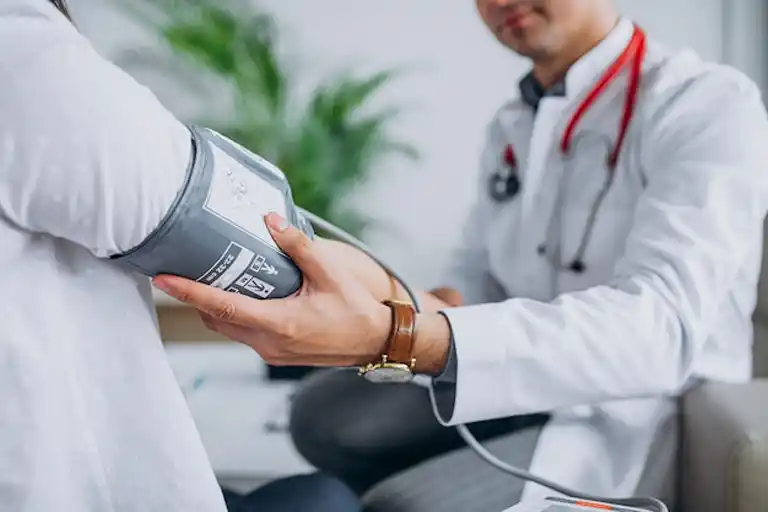Who Are The Cardiologists? Holistic Guide

In modern health, cardiologists are the most important people to protect our most important organ, the heart. More than just keeping an eye on heartbeats, these doctors and nurses work hard to make sure our hearts stay strong and healthy. We’re very proud to have a team of top-notch cardiologist who are committed to giving the best heart care possible.
Becoming a Cardiologist: Pathways to Expertise
Becoming a good cardiologist takes a long time, a lot of hard work, and a lot of schooling and training in the real world. After medical school, people who want to become cardiologists start specific residency programs. These long, hard training periods give them a deep knowledge of how the heart works, how to diagnose problems, and how to treat them effectively. Many cardiologists choose to focus on areas like heart failure, electrophysiology, and interventional cardiology in training programs that allow them to learn more about their fields.
Cardiologists Essential Examinations
Cardiologist use a variety of tests to find out what’s wrong with the heart and how to treat it. These tests help check the health of the heart and find possible problems:
1. Electrocardiogram (ECG/EKG)
An ECG records the electrical activity of the heart, which helps cardiologists find signs of heart attacks, irregular heartbeats, and other problems.
2. Echocardiogram
Sound waves are used in this non-invasive imaging test to get a clear picture of the heart’s structure and how it works. It’s a great way to check the valves, chambers, and blood flow of the heart.
3. Stress Test
Stress tests evaluate the heart’s response to physical activity, revealing hidden heart problems, particularly those that may not be apparent at rest.
4. Cardiac Catheterization
In this procedure, a catheter is inserted into the heart’s blood vessels to assess blood flow, measure pressure, and identify blockages.

Types of Cardiovascular Diseases Treated
Cardiologists are well-equipped to manage a wide range of cardiovascular diseases, including:
1. Coronary Artery Disease (CAD)
CAD happens when cholesterol and plaque build up in the coronary arteries and make it harder for blood to reach the heart. To treat this problem, cardiologists may suggest changes to the way you live, medicines, or procedures like angioplasty.
2. Cardiologists Treat Heart Failure
Heart failure happens when the heart can’t pump blood as well as it should. Cardiologists make individualized plans to improve the way the heart works and the general quality of life.
3. Arrhythmias
Arrhythmias are abnormal heartbeats that can cause tremors, dizziness, or even passing out. Cardiologists figure out what kind of arrhythmia a person has and treat it with things like medicine or a pacemaker.
4. Valvular Heart Diseases
Cardiologists are doctors who specialize in treating problems with the heart valves, such as valvular stenosis or regurgitation, by using drugs or surgery to get the blood flow back to normal.
5. Congenital Heart Defects Treated By Cardiologists
These are problems with the heart that were present at birth. Cardiologists who specialize in pediatric cardiology can identify and treat these problems, which are often fixed through surgery.
6. Peripheral Artery Disease (PAD)
PAD is when the arteries that bring blood to the limbs get narrower. To improve circulation, cardiologists use a variety of treatments, such as lifestyle changes, medicines, and procedures.
Different Types of Cardiologists and Their Responsibilities

Cardiology is a field with many subspecialties that each focus on a different part of heart health. Some well-known kinds of cardiologists are:
1. Non-Invasive Cardiologists
These experts focus on figuring out what’s wrong with the heart without having to do any invasive treatments. They figure out what the test results mean, suggest treatments, and work with other experts when necessary.
2. Interventional Cardiologists
Interventional cardiologists are doctors who treat blocked arteries and restore blood flow by using small cuts and needles. They do things like angioplasty, put stents in, and use catheters to do exact work.
3. Electrophysiologists
Electrophysiologists are doctors who are trained to find and fix problems with the way the heart beats. They use modern methods like cardiac ablation to fix heartbeats that don’t work right.
4. Heart Failure/Cardiac Transplant Specialists
These cardiologists focus on advanced cases of heart failure and take care of people who are waiting for heart transplants or are healing from them. They work closely with transplant teams to make sure that the best care is given.
5. Preventive Cardiologists
To lower the chance of heart disease, preventive cardiologists stress making changes to your lifestyle. They give advice on how to eat, exercise, and deal with worry.
Choosing the Right Cardiologists

Selecting a cardiologist is pivotal in your heart health journey. Consider these factors:
1. Credentials and Experience
Look for cardiologists who are board-certified and have a lot of experience treating your problem. A good track record shows how skilled and dedicated they are.
2. Communication and Comfort
It is very important to communicate well. Choose a cardiologist who listens carefully, addresses your worries, and explains complicated medical ideas in plain English.
3. Hospital Affiliations
Choose cardiologist who work at hospitals or medical centers with good reputations. This will make sure you have access to cutting-edge equipment and networks of specialists.
4. Patient Reviews
Reading patient reviews offers insights into a cardiologist’s approach, bedside manner, and overall patient satisfaction.
The Future of Cardiology
Cardiology is getting better as medical technology gets better. From genetic study to regenerative medicine and new devices that can be implanted, cardiologists are at the forefront of innovation, which means better treatments and outcomes in the future.
Remember
Cardiologist are an important part of keeping the heart healthy. They help us on our journey to better heart health with their information, diagnostic tools, and kindness.
Disclaimer: The information in this piece is just for general knowledge and is not meant to be taken as medical advice. It is important to talk to a qualified healthcare professional or cardiologist about your particular health condition to get an accurate diagnosis, a personalized treatment plan, and advice. The authors of this article do not recommend any of the treatments, procedures, or services that are described in it. If you have questions or worries about your health, you should always talk to a doctor or nurse.



